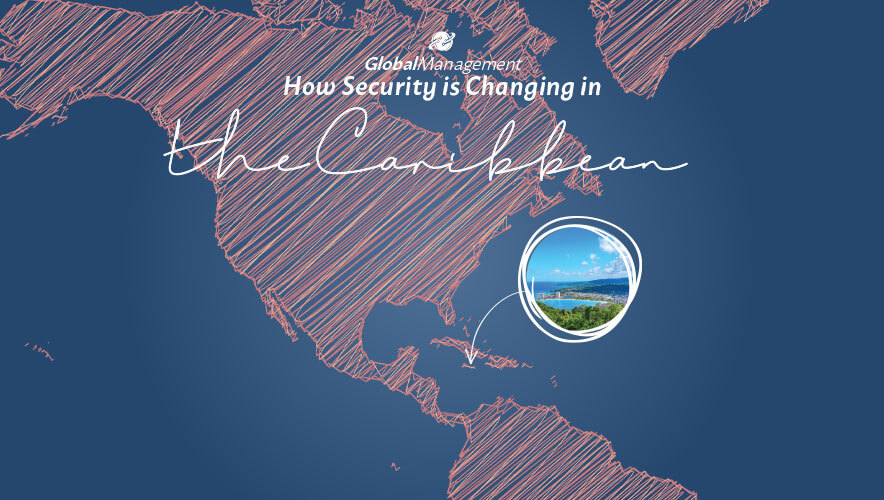Global Management: How Security is Changing in Jamaica
Every region of the world has threats that need mitigation; every organization has people and assets that need protection. But the practice of the profession is also influenced by local conditions and expectations from its security professionals.
With that in mind, this ongoing Global Management series from Security Management highlights security managers from different regions of the world to learn about the challenges they face and the management strategies that help them succeed.
In this online-exclusive installment, we turn to Jamaica to learn how certification and professional development are changing perceptions of security practitioners and what that means moving forward.
 Security Management checked in with Garth Gray, CPP, PCI, PSP, director of operations at Guardsman Group Limited. He is responsible for operational risk management and drives the strategies to address security challenges for clients across multiple sectors, including finance, government, manufacturing, ports, retail, and more. Gray is based in Kingston, Jamaica.
Security Management checked in with Garth Gray, CPP, PCI, PSP, director of operations at Guardsman Group Limited. He is responsible for operational risk management and drives the strategies to address security challenges for clients across multiple sectors, including finance, government, manufacturing, ports, retail, and more. Gray is based in Kingston, Jamaica.
This conversation has been edited for length and clarity.
What is it about your life experience, your personality, and your background that helps make you an effective security manager?
GG. I am a natural teacher from a family of teachers, with extensive experience in military training, enhanced by ASIS certifications. I grew up in the retail industry, so I understand how clients think and where their priorities lie. I also understand customer service, having worked in the supermarket business. These experiences and formal training have helped me to understand both strategic and operational security and how to relate to staff and clients to achieve the desired results.
You have achieved the ASIS certification triple crown, with the CPP, PCI, and PSP. Do you find that certification has a high value in Jamaica? How has certification helped your career and security management strategies?
GG. The ASIS International Jamaica Chapter has been leading the charge in bringing awareness to corporate and governmental entities, about the importance and relevance of having professionally certified security managers within their executive teams. Historically, these roles were filled by retired military and law enforcement personnel. The reality is that risk management, asset protection, and loss prevention are generally different security disciplines from the training and experiences in law enforcement and the military. We are now seeing an increase in professional certifications being a requirement for security jobs being advertised in Jamaica and the Caribbean. This indicates that professional certification is realizing increased importance across the region.
What are a few of the common challenges that a security manager may face working in Jamaica?
GG. The security department is still seen as a cost center, as opposed to a critical player in the enterprise that can add value at every phase of the business. Relatedly, the C-suite still perceives security as only security guards, as opposed to the holistic approach to managing risk of theft and other attacks.
Corporate and government agency procurement departments treat security guard services, electronic access control, video surveillance, and physical security barriers as separate and independent matters, and therefore they purchase them in silos and often without the input of the security manager.
If I am a security manager for an international firm being transferred to the Kingston office, what advice would you give me about avoiding mistakes when it comes to cultural issues that influence employee relations and the workplace?
GG. Be patient. Involve the local team in the planning process, even if you know the outcomes you are hoping for at the end. Develop a rapport with company influencers at every level. Once you get them on your side, progress becomes easier. Engage stakeholders in training and awareness programs—this facilitates dialogue and shared understanding.
In your view, is the relationship between manager and employee changing in Jamaica and Latin America at large? How does workplace culture today compare with years past?
GG. Many companies have transitioned to a “contract for services” model, as opposed to permanent employment. This gives employers some latitude in how they engage employees, however, it comes at the risk of diminished employee loyalty.
Relationships between managers and employees have certainly evolved in the past decade, particularly because of the presence of social media. The risk of information instantly hitting the public domain has forced managers to be more sensitive to the concerns of employees, resulting in the interactions (generally) being more amicable.
Given your experience as a business leader, do you see the role of the security department changing with some Jamaican companies?
GG. The role of security departments is evolving in a positive way, albeit slowly. While those landing security management jobs may be professionally certified, their development does not stop with certification; they need continued mentorship and exposure to help build their confidence in engaging the C-suite and arguing their case from a position of knowledge.
ASIS International is the perfect place to gain that mentorship, support, and exposure. Certified professionals are therefore encouraged to remain active members of their local chapters and benefit from the offerings of their chapters, ASIS Connects, and ASIS International as a whole.
